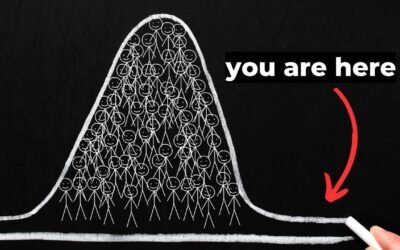Are you looking to make a positive change in your life? It all starts with understanding and mastering your habits. This guide not only explores the psychology behind habit formation but also offers practical strategies to help you cultivate beneficial habits while casting aside the detrimental ones. Embark on a transformative journey with us, and reshape your daily routine for a more fulfilling life.
Mastering the Art of Habit Transformation
In the quest for personal and professional growth, the ability to learn good habits and break bad ones is paramount. This comprehensive guide delves into the mechanisms of habit formation and reformation, providing actionable insights for a transformative journey.
Understanding Habits: The Psychological Blueprint
Habits are the invisible architecture of daily life, significantly influencing our behavior without our conscious mind’s engagement. Understanding the psychological underpinnings of habit formation is the first step to mastering them.
The Habit Loop: Cue, Routine, Reward
- Cue: The trigger that initiates the behavior.
- Routine: The behavior itself.
- Reward: The benefit gained from the behavior, reinforcing the habit loop.
Forming Good Habits: Strategies for Success
Instilling new, positive habits can be a challenge, but with the right strategies, it’s entirely achievable.
Start Small: The Power of Micro-Habits
Begin with small changes that require minimal effort. These micro-habits act as stepping stones to larger behavioral changes.
Stacking Habits: Building on Existing Behaviors
Link new habits to established routines, creating a robust structure for the new behavior to fit into your daily life.
Environment Design: Crafting Spaces for Success
Modify your environment to reduce friction towards good habits and increase it towards bad ones. This approach leverages external cues to reinforce desired behaviors.
Breaking Bad Habits: Techniques That Work
Breaking bad habits requires a different set of techniques, focused on disruption and replacement.
Identify Triggers: Awareness is Key
Recognize the cues that lead to undesired behaviors. Awareness allows you to disrupt the habit loop before it gains momentum.
Replacement Theory: Substituting with Better Behaviors
Instead of trying to eliminate a bad habit, focus on replacing it with a more positive routine that delivers similar rewards.
Accountability Systems: The Role of Social Support
Share your goals with friends or join a community. Social support and accountability are powerful motivators for change.
Reinforcing Habits: Ensuring Longevity
To ensure that good habits stick and bad habits remain at bay, reinforcement strategies are vital.
Consistency Over Intensity: The Myth of Motivation
Consistent action trumps sporadic bursts of motivation. Establishing a rhythm solidifies the habit into your lifestyle.
Tracking Progress: The Benefits of Visible Metrics
Measure your progress with a habit tracker. Visual representations of your consistency can be incredibly encouraging.
Reflection and Adaptation: The Continuous Improvement Loop
Regularly reflect on your habits and be willing to adapt your strategies as needed. Personal growth is not linear, and neither is the process of habit formation.
Conclusion: Embracing the Journey of Habit Transformation
The journey of transforming habits is ongoing and requires dedication, strategy, and self-compassion. By understanding the habit loop, employing techniques to form good habits, breaking bad ones, and reinforcing positive changes, we can reshape our lives in meaningful ways.
Remember, the power to change your habits is within you, and every step forward is progress. Embrace the journey, and watch as your world transforms one habit at a time.
I hope this structured article provides a comprehensive view on habit transformation, with practical advice that can be applied immediately.
References:














 How to trade CFD? (00:49)
How to trade CFD? (00:49) How to trade binary options*? (01:22)
How to trade binary options*? (01:22) Forex. How to start? (01:01)
Forex. How to start? (01:01)